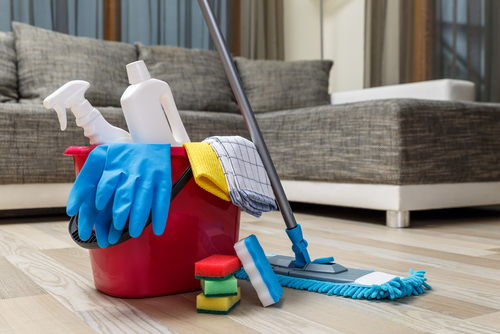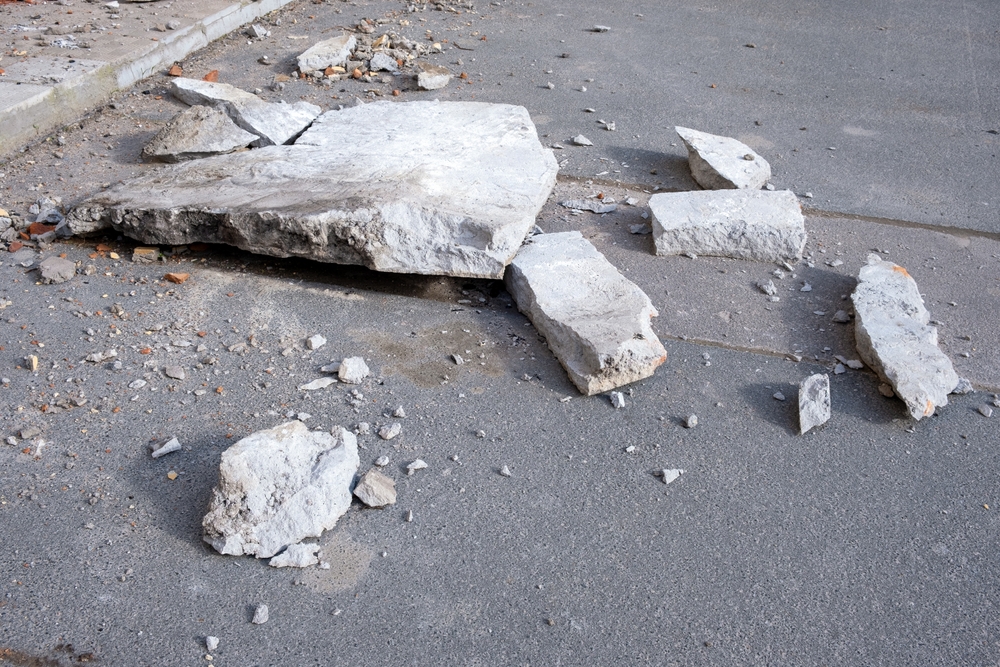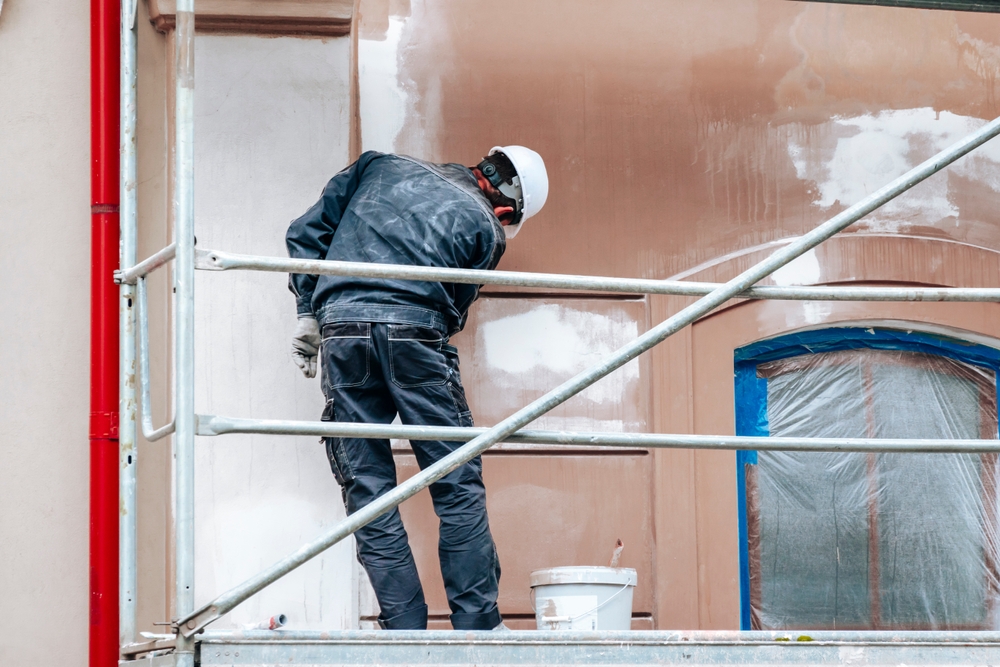April 5, 2024 - Benjamin Ehinger
Cleansing a House Where Someone Died: Essential Steps for Restoration
CALL NOW 844-762-8449
When faced with the daunting task of cleansing a house following the passing of a loved one, it’s natural to feel overwhelmed. You’re not only dealing with a significant emotional burden, but you’re also confronted with the responsibility of sorting through belongings, making legal decisions, and physically cleaning the property. It’s a process that requires compassion, organization, and practical action. You’ll need to know where to start, who to involve, and how to progress in a way that honors the memory of your loved one while taking care of logistics efficiently.
Among the first steps is to ensure the security of the property. It may be necessary to safeguard valuables or personal documents, particularly if the cleanout process will span several days or weeks. Organizing items into categories and deciding what will be kept, donated, or discarded helps to structure the process. In some situations, especially when the volume of items to be removed is significant, using a roll off dumpster rental from Waste Removal USA can be an invaluable step to ensure that the property is thoroughly and respectfully cleared out.
 When a loved one passes away, sorting through their personal belongings can be an emotionally challenging task. It’s important to approach this process with respect and patience, identifying items to keep for their sentimental value and organizing others for donation or sale to help others or settle the estate.
When a loved one passes away, sorting through their personal belongings can be an emotionally challenging task. It’s important to approach this process with respect and patience, identifying items to keep for their sentimental value and organizing others for donation or sale to help others or settle the estate.
 Addressing the complex emotions of grief while organizing a loved one’s belongings can be an intimate and overwhelming task. Your feelings of bereavement need to be acknowledged and managed with care, as you are likely to experience a range of emotions during this difficult time.
Addressing the complex emotions of grief while organizing a loved one’s belongings can be an intimate and overwhelming task. Your feelings of bereavement need to be acknowledged and managed with care, as you are likely to experience a range of emotions during this difficult time.
Key Takeaways
- Effective house cleansing after death involves emotional and logistical preparation.
- Securing the property and sorting belongings are critical initial steps.
- Utilizing professional waste removal services can simplify the cleanout.
Understanding the Process
When approaching the task of death cleaning, creating a plan is vital to maintain focus and navigate the grieving process. Understandably, this period is emotionally tender, but taking structured steps can help alleviate some of the burden. Here’s how you can stay focused throughout the estate cleanout process:- Secure the Property: Initially, make sure the house is secure to prevent theft and vandalism.
- Locate Important Documents: Search for the will, life insurance policies, and financial records, which will guide the next steps.
- Sort Personal Belongings: Categorize items into what you will keep, donate, sell, or discard. It’s helpful to:
- Keep: Items with sentimental value or necessary documentation.
- Donate: Things in good condition that can benefit others.
- Sell: Valuables that can be sold.
- Discard: Items that are no longer useful.
- Clean the Space: Once sorted, clean out each room methodically, ensuring that items are handled according to your plan.
- Honor Their Memory: As you work, take moments to reflect and honor your loved one. This can be a healing aspect of the grieving process.
Securing the Property
When a loved one passes away, securing their property is a vital first step. It ensures that their belongings are protected and provides a foundation to begin the estate clean-out process.Locating Important Documents
Before any physical tasks begin, make an effort to find and safeguard your loved one’s important documents. These might include wills, insurance policies, and property deeds. They are typically located in:- Safes
- Filing cabinets
- Desk drawers
Preventing Unauthorized Access
After locating important documents, the next priority is to prevent unauthorized access to the home. This involves:- Changing the Locks:
- Replace all exterior door locks.
- Consider adding deadbolts for added security.
- Asking for Help:
- Enlist the assistance of neighbors to watch the property.
- Inform local law enforcement of the vacancy to keep an eye on the home.
Sorting Personal Belongings
 When a loved one passes away, sorting through their personal belongings can be an emotionally challenging task. It’s important to approach this process with respect and patience, identifying items to keep for their sentimental value and organizing others for donation or sale to help others or settle the estate.
When a loved one passes away, sorting through their personal belongings can be an emotionally challenging task. It’s important to approach this process with respect and patience, identifying items to keep for their sentimental value and organizing others for donation or sale to help others or settle the estate.
Identifying Items to Keep
Begin by making a list of the deceased’s possessions. As you encounter items with sentimental value, such as family heirlooms or mementos that evoke cherished memories, set these aside. Consider these questions to help you decide:- Does the item hold significant emotional importance to you or other family members?
- Is it something you would like to pass down to future generations?
- Photographs and albums
- Jewelry with family significance
- Personal letters and diaries
Organizing for Donation or Sale
Once you have safeguarded sentimental pieces, focus on items that could be beneficial to others. Charitable organizations often accept donations of clothing, furniture, and books, which can support those in need and potentially provide you with a tax deduction.- Clothing: Assess the condition, and donate wearable, clean items.
- Furniture: Ensure it is in good condition for donation, or consider selling it.
- Books and miscellaneous items: These can often be donated to local libraries or thrift stores.
- Create two categories: Donate and For Sale.
- Place items in the respective group as you sift through belongings.
- Contact local charities to schedule a pickup or drop-off.
- For items to sell, list them online or consider a yard sale for a quicker process.
Addressing Legal and Financial Matters
When handling the estate of someone who has passed away, you’ll need to manage several legal and financial responsibilities. These typically involve understanding the will and probate process and taking care of bills and debt that the deceased may have left behind.Navigating Probate and Wills
The process of probate involves authenticating the deceased’s will and distributing assets as per the deceased’s wishes. If you are the executor, you will need to locate the important documents such as the will, social security card, bank statements, and insurance policies. Once you have these items in order, consider consulting with a probate attorney to guide you through the probate court proceedings. It’s crucial to understand that the process may vary depending on your local laws and the complexity of the estate.- Locate the will: Identify and secure the deceased’s last will and testament.
- File with probate court: Submit the will to the local probate court and begin the process.
- Inventory assets: List all assets and obtain valuations when required.
- Notify parties: Inform beneficiaries and creditors about the ongoing probate process.
Managing Outstanding Bills and Payments
After someone dies, their financial obligations do not simply vanish. As you navigate through probate, you will need to identify and pay any outstanding bills and payments. These may include utility bills, credit card debts, loans, or medical bills.- Review financial documents: Carefully look through recent bank statements and mail for any unpaid bills.
- Contact creditors: Inform lenders and service providers of the death. Some accounts may be covered by insurance policies or have specific protocols for deceased account holders.
- Settle debts: Prioritize settling the estate’s debts using the available assets according to the direction of the probate court.
- Keep records: Maintain detailed records of all transactions and correspondence for court review and personal reference.
Organizing an Estate Sale
When a loved one passes away, managing their belongings can be an emotional and complex task. An estate sale can be an effective way to sort through and sell these items. The following outlines clear steps to take in the planning and execution stages.Planning the Sale Event
To begin planning your estate sale, you should first sort all items and decide what will be sold, donated, or kept. Taking this step helps avoid mix-ups during the sale. After sorting, determine the date and duration of the sale, keeping in mind that estate sales typically run over the course of several days, often including the weekend to maximize attendance. Create a detailed inventory of items to be sold, and organize them by category (such as furniture, kitchenware, or books). This inventory serves as a reference for both pricing and tracking items during the sale. Consider the layout of the sale area to ensure a logical flow that allows buyers to move freely and view items without crowding.Hiring Professionals for Valuation
In many cases, hiring an estate sale company can greatly facilitate the process. These professionals can provide valuable services such as appraisal of items, pricing guidance, and even managing the sale itself. To hire an estate sale company:- Research local companies: Look for reputable firms with experience in handling estate sales.
- Check references and reviews: Get feedback from others who’ve used their services.
- Interview candidates: Meet with potential companies to discuss their services, fees, and sales strategy.
- Understand the agreement: Review the contract thoroughly before signing to ensure clarity on all terms of the partnership.
Dealing with Grief and Emotions
 Addressing the complex emotions of grief while organizing a loved one’s belongings can be an intimate and overwhelming task. Your feelings of bereavement need to be acknowledged and managed with care, as you are likely to experience a range of emotions during this difficult time.
Addressing the complex emotions of grief while organizing a loved one’s belongings can be an intimate and overwhelming task. Your feelings of bereavement need to be acknowledged and managed with care, as you are likely to experience a range of emotions during this difficult time.
Seeking Support from Family and Friends
Grief is a journey often best navigated with the support of those around you. Close family members and friends can offer not just an emotional connection but also practical help. It’s all right to lean on people who care about you to share stories, express feelings, or delegate tasks.- Requesting assistance: Identify family and friends who can help, turning the task at hand into a shared effort.
- Establishing a ritual: Consider creating a small ritual with family which can provide closure, such as lighting a candle or sharing memories.
Consulting Grief Counselors and Support Groups
While family and friends are invaluable, sometimes you might need the guidance of specialized grief counselors or grief support groups. These professionals and peer networks are trained to help you navigate through the waves of bereavement.- Identifying support options: Research local support groups, or consider online sessions if they offer more flexibility to your schedule.
- Embracing professional assistance: Recognize that seeking help is a sign of strength, and counselors can provide coping strategies tailored to your situation.
Finalizing the Cleanout
When finalizing the cleanout after a death, ensuring thoroughness in the inventory process and sticking to a set deadline are crucial steps to successfully managing this sensitive task. Enlisting the help of a professional organizer can streamline the process, helping you to sort, list, and potentially sell items on platforms like eBay.Completing the Inventory
Your initial task is to complete a comprehensive inventory of the deceased’s possessions. This involves:- Sorting Items: Distinguish between what to keep, donate, sell, or discard.
- Listing Items: Create a detailed list for each category, including condition and potential value.
Establishing a Cleanout Deadline
Setting a clear deadline is essential and will guide you through the cleanout process with purpose and direction. Consider these steps:- Set a Realistic Deadline: Based on the size of the property and the volume of possessions, choose a feasible end date.
- Plan Backwards: Work backwards from your deadline to schedule phases of the cleanout, like sorting and removal.
- Stick to the Plan: Adhere to your scheduled timeline to avoid unnecessary delays or complications.
Frequently Asked Questions
Addressing questions about cleansing a home after someone has passed can help manage the tasks ahead and honor the memory of your loved one.Should you have the house blessed by a Catholic priest after a death happens in it?
Having a Catholic priest bless the house is considered the optimal spiritual ritual for sanctifying the space after a death. This blessing can bring peace of mind and is intended to cleanse the house of any lingering spiritual presence.Which of the dumpster rental sizes from Waste Removal USA is right for this type of project?
Selecting the right dumpster rental size depends on the volume of items to be disposed of. For cleansing a household after a death, a 10-yard dumpster or 20-yard dumpster is typically sufficient.What are the steps for spiritually cleansing a home following a passing?
The steps for spiritually cleansing a home can include airing out the rooms, using salt or rice in corners to absorb negative energy, burning cleansing herbs such as sage, and reciting prayers or positive affirmations.Are there any specific cultural or religious practices to consider when cleansing a house after a death?
Yes, it’s important to consider any cultural or religious practices specific to the deceased. This may include rituals from a variety of different faiths.What are some tips for sleeping in a room where someone has previously passed away?
Cleanse the room thoroughly and rearrange the furniture to alter the energy. Some find comfort in placing a new item in the room or introducing a scented candle to help create a different ambiance.How can I ensure I’m respecting the memory of the deceased while cleansing my home?
Respect the deceased by handling belongings with care, possibly keeping special items or donating to charities they supported. Involving friends and family in the process can also ensure that the cleansing is done with respect.RECENT BLOGS
Our Reviews
Glenda Lanier Prowell
1721758635
I have ordered an 11 yard dumpster to be delivered to my house.Lonier was extremely helpful and answered all my questions. The rate was very reasonable.
Cedric Smikle
1721660395
Amber was extremely professional and courteous. She answered all of my questions and even some that I didn’t know I needed to ask.
Cait Kaider
1721243051
I highly recommend Waste Removal USA for their responsiveness and how the staff work hard to provide exceptional customer service. They have done well by us and our clients. Thank you!
Easom Family
1721223306
Louiner Pierre-Louis Is awesome! Did a great job. Will definitely be using this same company for all my dumpster needs because of his awesome customer service! Thank you!!!
tabitha Vazquez
1720539988
Wonderful and fast customer service!
LATEST BLOGS






